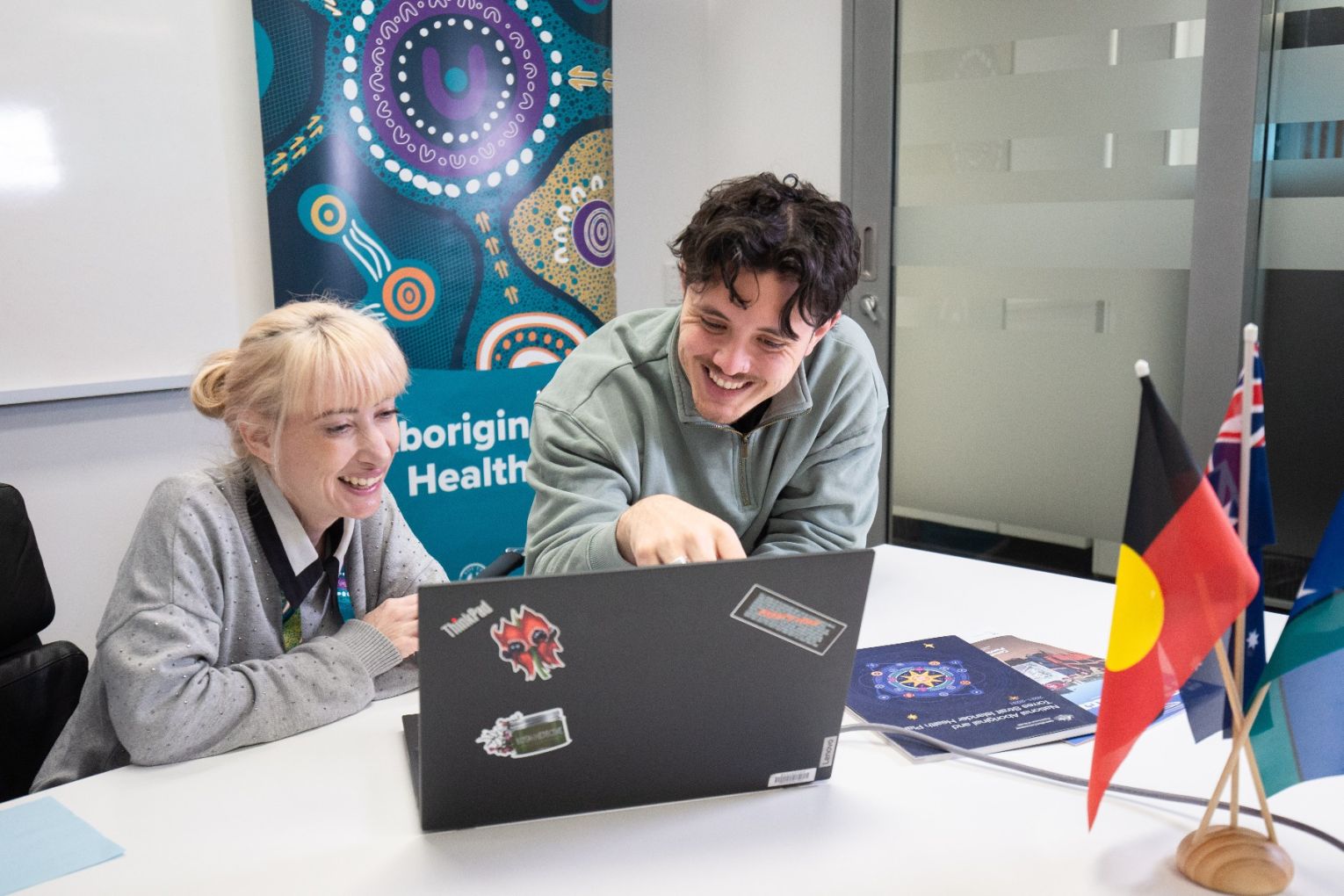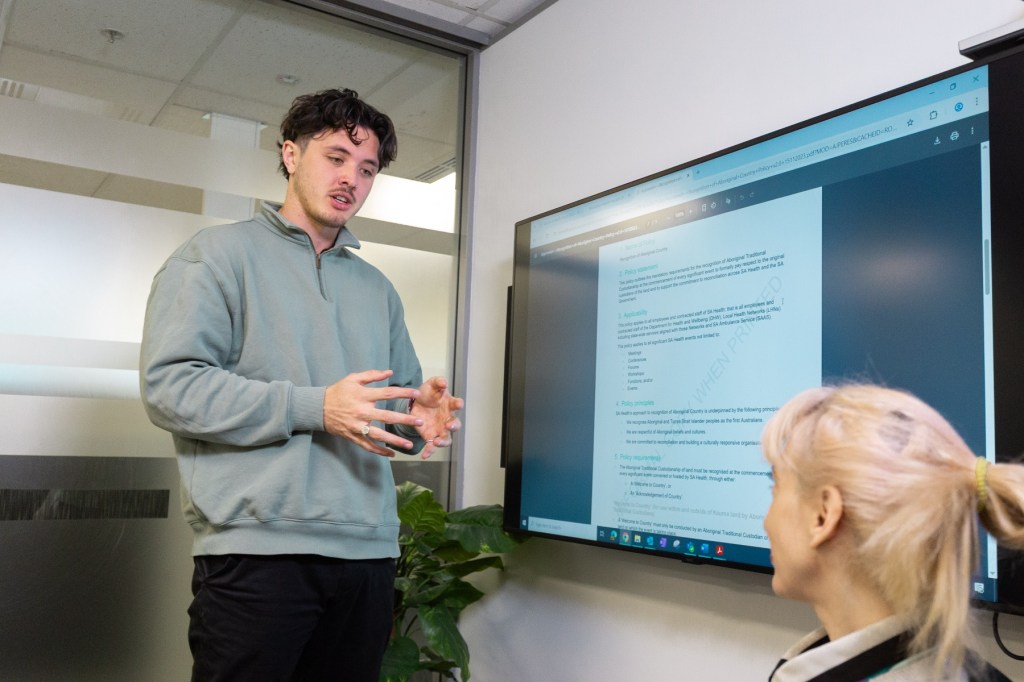It takes a team: How community shaped Edwin Dyson’s educational journey
From a close-knit country school to leading Indigenous health data reform, Edwin Dyson’s story reflects the power of support, connection and teamwork – values at the heart of a new educational campaign to help students thrive.

Growing up in the tight-knit community of Moonta on South Australia’s Yorke Peninsula, Edwin Dyson knew everyone in his school – not just in his year, but three years above and below.
“Being in the country, it was quite different to the city,” he recalls. “When I spoke to people going to school in Adelaide, they would say, ‘Oh yeah, we have 250 Year 12s.’ And even with the names on the back of their jumpers, they didn’t even know all the names.
“At Moonta Area School, I knew everyone in my entire year level, three years above me, I knew everyone’s parents, brothers and sisters, so it was very tight knit. It was pleasant.”
That deep sense of connection and mutual support has stayed with him, and it’s a message he’s carrying into a new statewide initiative celebrating the networks that help students thrive.
Launched on World Teacher’s Day on October 31 by the South Australian Secondary Principal’s Association and Minister for Education Blair Boyer, Our Schools: It Takes a Team is a statewide initiative celebrating the networks that help students thrive in partnership with their public school and educators.
The campaign calls on South Australians to celebrate the people and moments that made their public school experience special – a mentor who sparked ambition, a trip that opened new horizons, or a teacher who cared enough to go the extra mile.
You might like
“Our Schools, It Takes a Team is more than a campaign – it’s a celebration of the people who make public education strong: teachers, parents, leaders, and communities working together,” SASPA chief executive Kirsty Amos said.
For Dyson, those guiding forces were close to home: his parents, his family and the educational community that shaped his path.
“I had very good relationships with most of my teachers,” he says. “That probably created the best environment for me. I found that I was most productive when I got along well with the teachers.
“We were on first name or nickname basis with them – that’s how they wanted to be addressed.”
As an Aboriginal and Torres Strait Islander student, Dyson was offered extra academic support, but he chose to leave that for others who might need it more. “I was confident in my own ability to achieve results,” he says. “And I had that support from my teachers already.”
Thanks to that support from his teachers and staff, Edwin rose to the role of School Captain – providing him with the opportunity to lead, inspire and gain life skills that will stay with him well beyond school.
Edwin’s hockey coach, Phil Ward, was one of those teachers whose support and encouragement had a major impact on Edwin’s school journey and personal growth.
“We come from a hockey family,” he says. “Dad and my brothers played at Moonta Hockey Club before I was born, so Phil’s known me as long as I’ve been alive.
“Phil coached me from when I was old enough to hold a stick, which is probably three or four years old. He pushed me to get my umpiring accreditation. That, in turn, helped me supported myself financially as a 15-to-16-year-old, meaning I had a bit of extra money to spend. He was very forthcoming and supportive as a non-blood-related community member – more than you would expect.”
Support also came from home – in all the small, unseen ways families hold things together. “Mum and Dad were obviously cornerstones, driving me to school, supporting me to go on excursions, all those unsung things parents do that you never quite appreciate at the time — waking you up in the morning when you don’t particularly want to get up, getting you to do your assignments, getting me a laptop so I could do my schoolwork at home, helping me on assignments when I needed,” he says.
“You can’t really quantify it and put into words how much they really support you, but that was obviously a big part. Also, other family members – my aunty often did the school drops when Mum and Dad were working.”
That family support continued when Dyson left Moonta to study at Flinders University. “Moving to Adelaide when I went to university, coming from the country I didn’t really know anyone or have anywhere to live,” he says. “I lived with one of my aunties when I was going through my undergrad, which made it so I didn’t have to work all the time and could focus on my studies. Again, how do you quantify that value?”

Dyson graduated with a Bachelor of Medical Science before moving to Queensland to undertake a Masters in Public Health. Once again, family was there when it mattered most. “My dad’s family is from Queensland, and I was lucky enough to stay at my aunty’s house for three weeks while I found permanent housing,” Dyson says. “That kind of support is the difference between signing a lease on a house you’ve never been to, and being able to go to properties and scope out the area and find the best place to live.”
Today, Dyson’s work as a senior evidence performance officer in SA Health’s Aboriginal Health Team continues to be grounded in the same principles that shaped him — connection, collaboration and trust. His role focuses on Priority Reform 4 of the National Agreement on Closing the Gap: sharing data transparently and meaningfully with Aboriginal and Torres Strait Islander communities.
“It’s about how we can make data more transparent and shareable from SA Health to grassroots communities, people who don’t live in Adelaide,” he says. “We do a lot of data governance, trying to embed Indigenous data sovereignty and data governance into current government systems, which historically haven’t been built for Aboriginal and Torres Strait Islander people.
It’s giving them information so they can make better informed decisions about their own health.”
Looking back, Dyson sees how every step – from his school teachers’ advocacy to his family’s quiet support – has led him here. “It just shows what can be done when everyone pulls together,” he says.
“You don’t necessarily know as you’re going through it but, being it’s good to look back at each stage of my life and highlight and acknowledge that tangible support you don’t necessarily see day to day.
“You also see as you get older all those sacrifices your parents have made to support you to get to the place you are now.”











